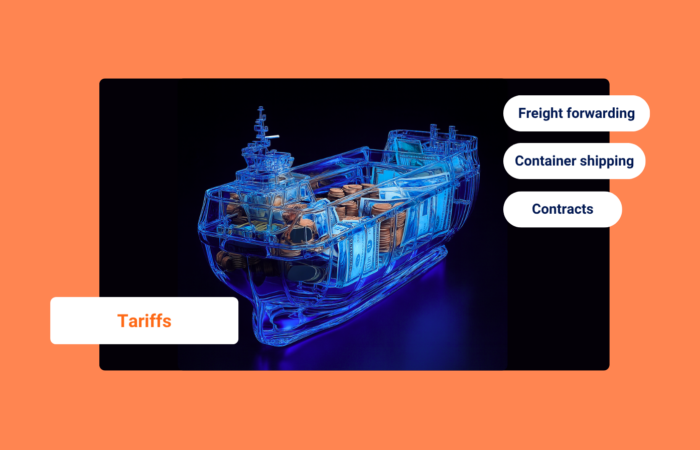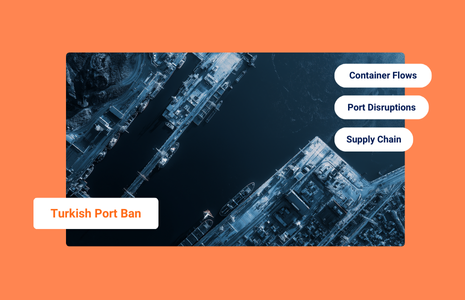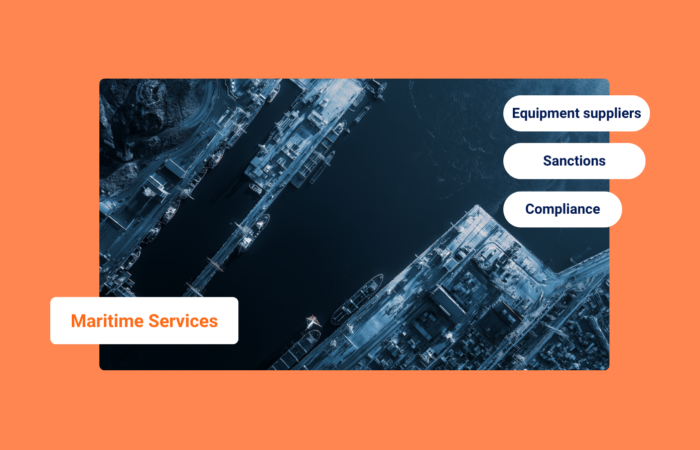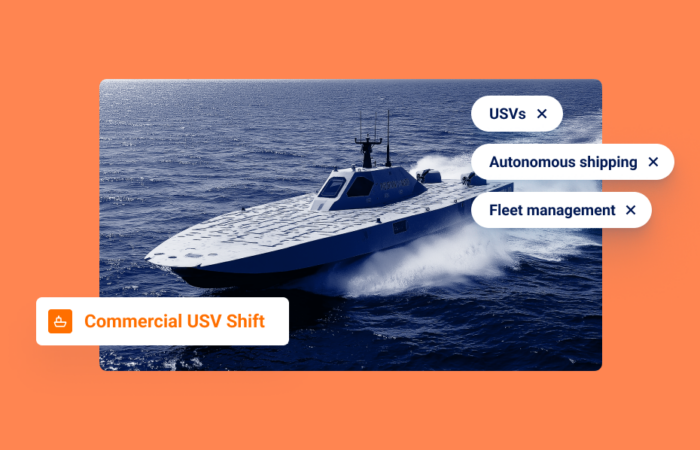You’re Tracking the Wrong Cargo Vessel 17% of the Time?!

What’s inside?
Without quality data, logistics and supply chain organizations cannot effectively manage container tracking, customer interactions, or make strategic decisions. The phrase, “Garbage in, garbage out” comes to mind. AIS data comes with a great deal of “noise”, and effective container tracking is not just about data. It involves quick mining to produce actionable insights.
Based on our whitepaper, “A New Day for Data: Overcoming Ocean Freight Data Challenges”, let’s explore the challenges posed by unreliable data sources, the impact on container tracking, and the repercussions for strategic decision-making.
Data Reliance and Integrity Challenges in Logistics
Some freight forwarders, importers, and exporters are overly reliant on a single source for data, while others draw from multiple sources, but are still struggling with data quality and integrity issues, such as:
- Location verification – is my container loaded or discharged where I expect it to be?
- Vessel identification – is the reported vessel the actual vessel that transports my cargo?
- Inaccurate reporting of milestones – did the reported event actually occur? For instance, if the container was reported as “loaded,” is it really aboard the vessel?
These data obstacles can lead to inadvertently tracking the wrong shipment or vessel.
Windward conducted a data comparison and found that with an industry-standard transportation management system (TMS), logistics and supply chain organizations are tracking the wrong vessel 17% of the time!*
The current state of data makes it difficult for organizations to achieve visibility, let alone actionable visibility. This situation impacts strategic decision-making, cost-saving initiatives, and the customer experience.
*One or more of the shipment legs was misaligned with Windward’s data, which was validated by vessel activity/port calls.

Enhancing Logistics Efficiency Through Data Integration
Flexible and reliable data means changes are triggered by events and don’t affect all data. Integrating multiple sources (shipping lines, but also terminals, port calls, etc.) enables avoidance of duplication, selection of the correct sources for milestone tracking, and the ability to send configurable updates for each shipment – not just when there are changes.
Incremental data validation prevents bottlenecks and having to cope with a full load of statuses, speeding processes, and removing an unnecessary anchor.
Windward’s Data Differentiators
Windward has implemented a new standard of accuracy in our Ocean Freight Visibility solution. Our new data draws upon multi-source data, synthesizing raw data, container data, vessel activity, and human input. This multitude of sources reduces the chances of errors and facilitates greater accuracy. Windward’s real-time analytics database means everything is searchable and offers fast response times.
Streaming can greatly reduce latency, which is important because customers upset about delayed freight do not want to wait for buffering. GraphQL and advanced MLOps are able to furnish you with the agility and flexibility to cope with a complex landscape and disruptive global events.
Windward’s data differentiators include:
- Multiple sources: by utilizing multiple sources for data, Windward ensures our technology is not over-reliant on any one source.
- Clean data: some maritime technology vendors show data as-is, while others do basic clean-up. Windward heavily invests in cleaning the data, because if data is not clean, everything built on top of that flawed foundation will be wobbly. Maritime domain expertise is key for understanding and constantly evaluating data points.
- Iterative improvement of current and historical data: part of what sets Windward apart is our platform’s ability to take new insights and apply them to our historical data. This transforms the existing data into a treasure trove that continues to yield new analytical gems.
Customer Benefits: Accuracy and Adaptability
Customer benefits include:
- Greater accuracy: breaking problems into different phases via flexible architecture enables the creation of accurate data sets, independent from data providers’ errors
- Latency: streaming architecture transforms each event individually, ensuring minimal latency, especially for port calls
- Flexibility: a step-by-step concept allows local changes to logic options, for quick fixes (broken into microservices. Services aren’t packaged, so you can change data)
- Data versatility: standard event structure allows transformation of different data sources and types to a single stream of data (terminal, or rail)
- Enhanced editing: architecture will empower users to manually edit events
The challenges of unreliable data in the maritime industry significantly impact logistics and decision-making processes. Issues like tracking errors and data discrepancies highlight the need for integrated and dependable data solutions. Addressing these challenges requires a commitment to diverse data sources, rigorous cleaning, and ongoing improvements to enable better decision-making in maritime logistics.











